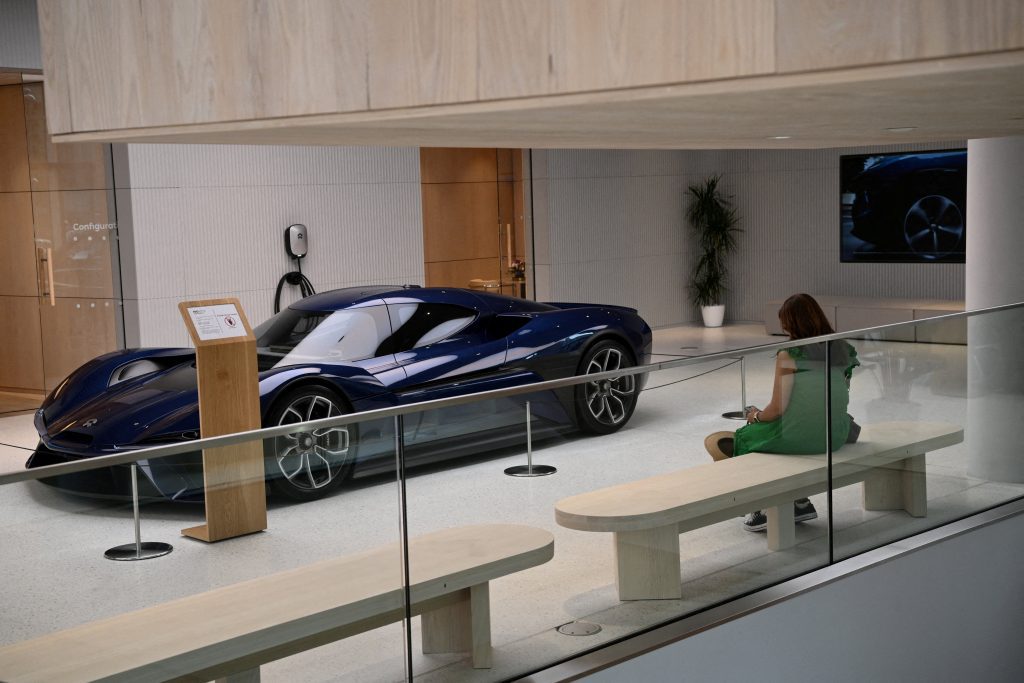
BEIJING -Chinese electric vehicle maker Nio on Thursday signed a partnership agreement with battery giant CATL to develop longer life batteries as part of efforts to lower overall EV costs.
The partnership will leverage technologies from both companies seeking to lower the so-called “full life cycle” costs of batteries – key for the operating costs of Nio’s thousands of battery-swapping and charging stations, William Li, Nio’s founder and CEO, told reporters in Beijing.
“One of the most important problems that has fundamentally not been solved nor attracted widespread attention is battery life,” Li said.
“This is not only a problem that Nio needs to solve, but one that the whole industry must work together to solve.”
Warranties typically cover EV batteries for eight years. Between 2025 and 2032, nearly 20 million EV battery warranties in China will expire, Nio said, pointing to the shorter life of batteries versus cars and the expense of replacing power packs.
Nio said it had extended the lifespan of swappable batteries through its research efforts, retaining 80% of capacity after twelve years.
The company also announced a cut of up to 33% in monthly rental fees for batteries for Nio users in a battery rental scheme, which works to lower EV purchase costs by as much as 128,000 yuan ($18,000).
After receiving more than $3 billion from Abu Dhabi investor CYVN Holdings last year, Nio has strived to become profitable more quickly by trimming its workforce and deferring long-term investments to improve efficiency.
The company, however, said it would still keep investing in developing core technologies such as batteries on its own. It has commercialised 150 kilowatt hour (kWh) semi-solid-state batteries for its EVs, manufactured by Beijing Welion New Energy, which have a range of up to 1,000 km (620 miles).
Nio has also invested heavily in infrastructure for battery charging and swapping. It currently has 2,382 swapping stations and 21,652 public charging stations, according to Li, who added that charging has turned profitable for Nio but that it is still losing money in battery swapping.
Swapping could help to ease the strain on power grids at peak times when drivers recharge, but industry analysts and executives expect it will only become mainstream if batteries become more standardised. While some have criticised swapping stations as a costly investment, Nio says they can be both a quick solution to powering up EVs and an energy storage facility to improve grid stability.
Nio expects to unveil its second brand, known as Ledao in Chinese, in May, the company’s president Qin Lihong said. Nio has been developing two sub-brands to target a wider range of consumers and the project code name for Ledao was Alps.
Nio currently buys most of its batteries from CATL and has been exploring battery supplies from new partners such as CALB.
($1 = 7.1927 Chinese yuan renminbi)
Inside Telecom provides you with an extensive list of content covering all aspects of the tech industry. Keep an eye on our News sections to stay informed and up-to-date with our daily articles.